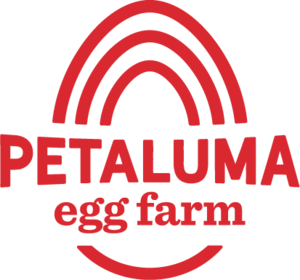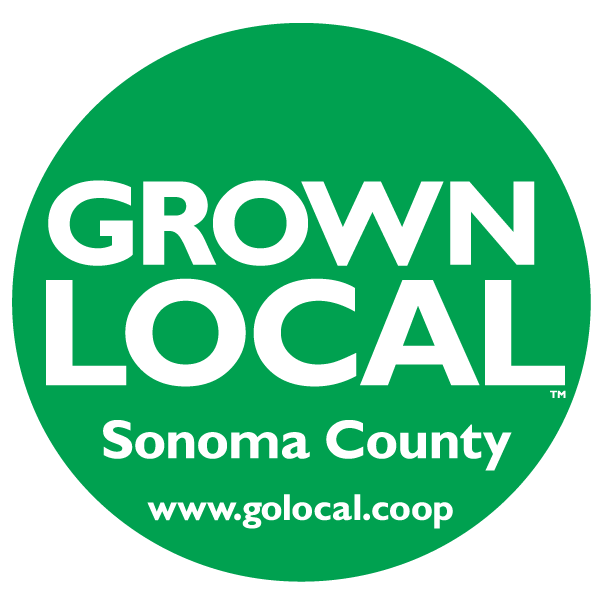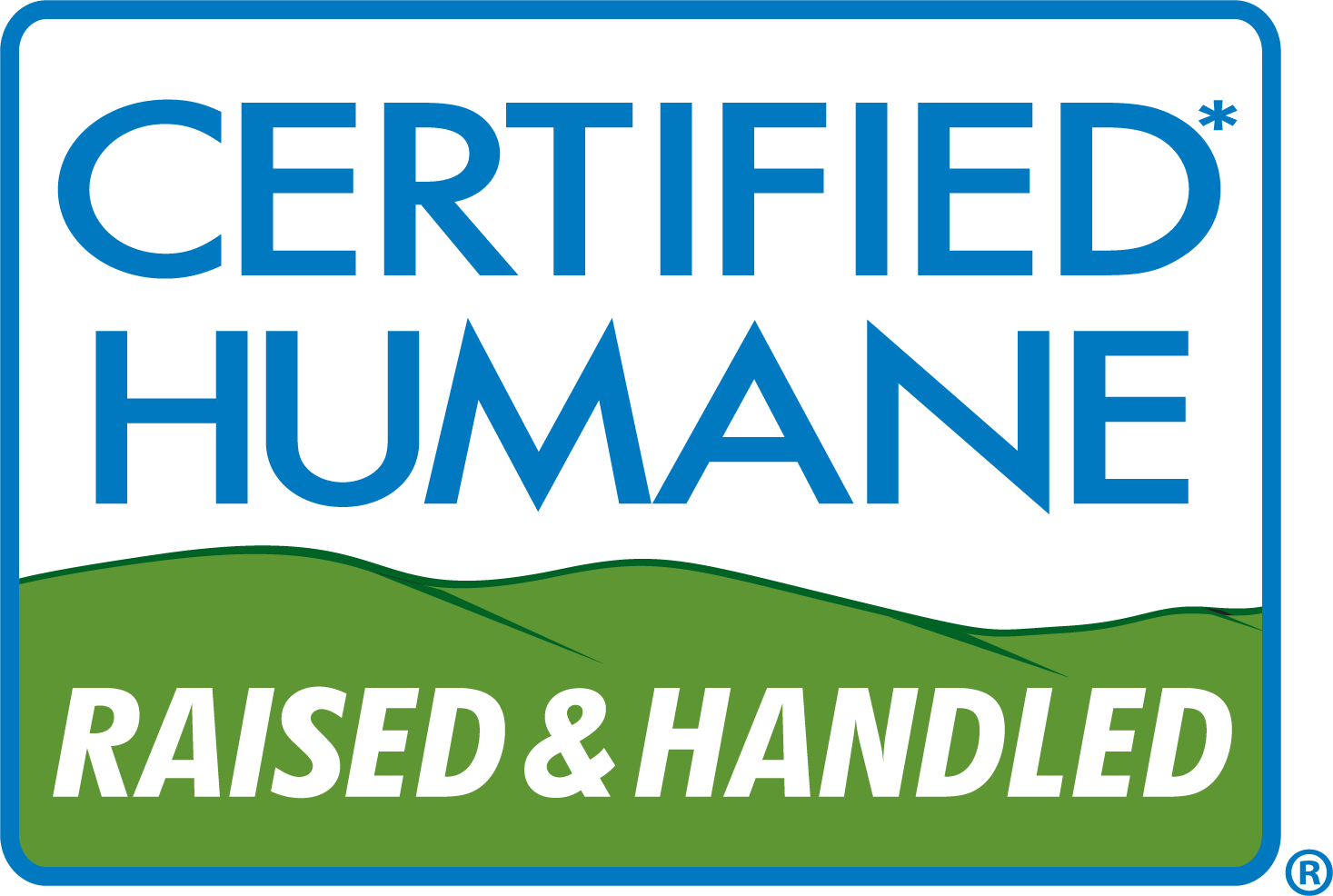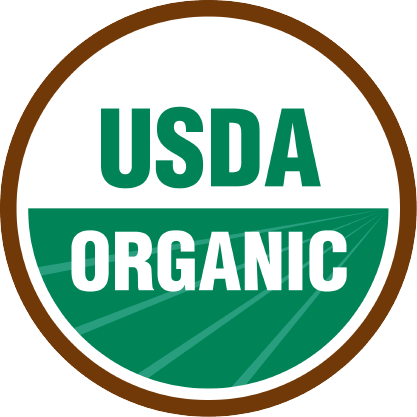What do all the certifications on eggs mean?
It can be confusing when you see all of the various certification logos on food packaging, but each certification on Petaluma Egg Farm packaging ensures that the claims made regarding that certification have been verified by a third party.
Regardless of certification, our family always strives to take good care of our hens, often exceeding standards set by certifiers. In fact, when we first obtained our Certified Humane certification, we had to change very little about our operation because we were already meeting or exceeding most of the standards.
Many farms make assumptions about what chickens will like, but my dad takes the time to sit down in our chicken houses to watch and listen to them as they go about their day. From these observations, we are continuously improving how we raise chickens, making our hen houses better for both the chickens and the people working in them.
Below is an explanation of the different certifications that we take part in (depending on the brand) and the steps we go through to be awarded each.
We believe it's so important to buy food produced by local farmers. When you buy from local farms like ours, instead of traveling thousands of miles, your food only takes tens of miles to get to your local grocery store. In fact, 90% of the stores we serve are located within 100 miles of our farm! That’s why we joined the GO LOCAL Sonoma County Cooperative. GO LOCAL works to promote a strong local economy and vibrant community in Sonoma County.
The Non-GMO Project is a 501(c)(3) nonprofit organization committed to building and preserving the non-GMO food supply for all. They have a product verification program to identify, create, and/or maintain sources and practices that effectively minimize GMO risk to the supply chain, and to support the release of products to the marketplace that demonstrate their GMO avoidance in accordance with the standard.
-
A genetically modified organism (“GMO”) is an organism to which Biotechnology has been applied and derivatives of such an organism.
Cloned animals are included within this definition.
Biotechnology is the application of:
a. in vitro nucleic acid techniques, including recombinant deoxyribonucleic acid (DNA) and the direct injection of nucleic acid into cells or organelles; or
b. fusion of cells beyond the taxonomic family, that overcame natural physiological, reproductive, or recombination barriers and that are not techniques used in traditional breeding and selection. More specifically, and for the avoidance of doubt, Biotechnology includes and is not limited to all of the following new genetic engineering techniques:
Certified Humane® is a registered 501(c)(3)animals in food production. Certified Humane® Raised & Handled operations meet precise, objective standards for farm animal treatment including:
• Access to wholesome and nutritious feed
• Appropriate environmental design
• Caring and responsible planning and management
• Skilled, knowledgeable, and conscientious animal care
• Considerate handling, transport, and slaughter
They have their own standard for Egg Laying Hens including:
-
Wholesome, Nutritious Feed
Hens must be fed a wholesome diet that is:
a. Appropriate to their age, stage of production and species; as recommended by the latest report of the National Research Council (NRC) and recommended for their geographic area.
b. Fed to them in sufficient quantity to maintain good health; and
c. Formulated to satisfy their nutritional needs.
d. Hens must have daily access to coarse calcium, to aid with bone strength and shell quality.
Free access to feed
a. Hens must have free access to nutritious feed throughout each day, except when required by the attending veterinarian.
b. Withdrawal of feed to induce a molt is not permitted.
Feed records
a. Producers must have a written record of the feed ingredients and nutrient content of each feed used, as declared by the feed manufacturer/supplier.
b. Producers must make feed records available to Humane Farm Animal Care during inspection and at other times, upon request.
Substances Prohibited in Feed
a. No feedstuffs containing avian-derived protein are permitted with the exception of eggs.
b. The use of growth promoters is prohibited.
c. Antibiotics and coccidiostats may only be administered for therapeutic reasons (disease treatment) and only under direction of a veterinarian.
Fresh Feed
Feed must not be allowed to remain in feeders in a contaminated or stale condition.
Easy availability of feed
To ensure that feed is easily available to hens, producers must provide each hen with at least:
a. 2.0 in. (5 cm) of (actual) linear track (for double sided)
b. 4.0 in. (10 cm) of linear track for (for single sided) or
c. 1.5 in. (4 cm) of perimeter space for circular feeders.
Positioning feed and water stations
a. Hens must not have to travel more than 8 yards (7.3 meters) in the house to reach feed and water, including in systems of more than one level.
b. Particular attention must be given to the provision and distribution of feed and water in the recovery/hospital areas frequented by subordinate and injured hens.
-
Water supply
a. Hens must have continuous access to an adequate supply of clean, fresh drinking water at all times.
b. Provisions must be made for supplying fresh water when temperatures are below freezing.
Number of drinkers that must be provided is as follows:
1. Bell: 1 per 100 hens
2. Nipple: 1 per 12 hens
3. Troughs are to be used with ½” per bird (1.27 cm)
Placement and design of drinkers
To reduce water spillage and prevent consequent problems with litter management, drinkers must:
a. Be placed at an optimum height for the size and age of the birds;
b. Be of an appropriate design, and
c. Be checked and maintained regularly.
Emergency water supply
A method for providing clean, fresh water for a period of at least 24 hours during a shut off of the main water supply must be available on-site.
-
The environment in which hens are kept must take into account their welfare needs and be designed to protect them from physical and thermal discomfort, fear, and distress, and allow them to perform their natural behavior. All Cages type systems such as battery cages, furnished or enriched cages, as well as aviary systems that are designed to confine birds such as lock back cages that would be open during the day but closed at night, are prohibited. In aviary The environment in which hens are kept must take into account their welfare needs and be designed to protect them from physical and thermal discomfort, fear, and distress, and allow them to perform their natural behavior. All Cages type systems such as battery cages, furnished or enriched cages, as well as aviary systems that are designed to confine birds such as lock back cages that would be open during the day but closed at night, are prohibited. In aviary systems, all hens must have access to all levels of the housing system at all times, including:
• Buildings
• Floor and litter
• Lighting
• Space allowance
• Air quality and thermal environment
• Nest boxes
• Perches
• Multi-Tier systems -
Where laying hens have access to range or the outdoors, the following definitions and standards must be met.
Free Range: is a management system in which adult birds are kept in houses with daily access to an uncovered outdoor area weather permitting. The minimum outdoor space requirement is 2 square feet (0.19 square meters) per bird to meet the Animal Care Standards for Free Range. All other standards must be met.
-
Empathy and responsible management are vital to ensure good animal welfare. Managers and caretakers must be thoroughly trained, skilled and competent in animal husbandry and welfare, and have a good working knowledge of their system and the laying hens under their care.
-
Hens must be protected from pain, injury and disease. The environment in which hens are housed must be conducive to good health. All producers must develop a health plan in consultation with a veterinarian.
-
Animal transport systems must be designed and managed to ensure hens are not caused unnecessary distress or discomfort. The transport and handling of hens must be kept to an absolute minimum. Personnel involved in transport must be thoroughly trained and competent to carry out the tasks required of them.
For more information and a full list of requirements on the above, you can download the Certified Humane® requirements here.
The USDA Organic icon is a certification mark used by the United States Department of Agriculture (USDA) to indicate that a product has been produced and processed according to the standards set by the USDA's National Organic Program (NOP).
The organic standards set by the NOP are designed to promote sustainable agricultural practices, reduce the use of synthetic pesticides and fertilizers, and encourage the use of renewable resources. To be certified as organic, a product must meet a number of criteria, including:
No use of synthetic pesticides, herbicides, or fertilizers
No use of genetically modified organisms (GMOs)
No use of irradiation, sewage sludge, or other prohibited substances
Use of organic seeds and plants
Implementation of crop rotation and other soil conservation practices
Use of animal welfare standards in animal production
For more information on the USDA Certified Organic certification, click here.
OU Kosher is a certification granted by the Orthodox Union (OU), a Jewish organization that provides kosher certification services for food and beverage products. Kosher is a term used to describe food that adheres to Jewish dietary laws, which are based on the biblical and rabbinical laws of Kashrut.
The OU Kosher certification indicates that a product has been produced and processed according to Jewish dietary laws and meets the strict standards of the OU. This certification process involves rigorous inspections of the facilities where the food is produced, as well as the ingredients and production methods used.
The OU Kosher certification is widely recognized and respected within the Jewish community and beyond, and many people choose to purchase certified products for religious, health, or ethical reasons.
For more information on the OU certification process click here.






